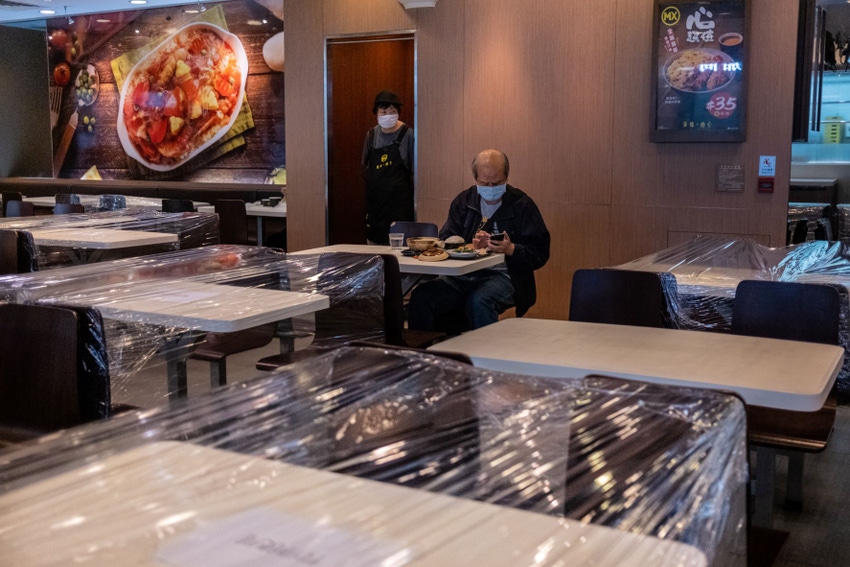Restrictions are impacting importation, movement and consumption of U.S. red meat in the region.
March 22, 2022

While most Asian countries are gradually easing social distancing restrictions and taking more of a "living with COVID" approach to the pandemic, there are notable exceptions in Hong Kong and some areas of China. In these situations, authorities continue to impose strict public health regulations in an effort to stop further spread of the virus.
U.S. Meat Export Federation Senior Vice President Joel Haggard, who is based in Hong Kong, says these restrictions are impacting importation, movement and consumption of U.S. red meat in the region.
"Local authorities are stating that they want to continue to follow a COVID-zero goal but it looks like the city's abandoned a plan it had to test every Hong Kong resident for COVID three times over a period of nine to 10 days and that was to start at the end of March," Haggard says. "During that testing period, the plan was to ask residents to shelter in place to help break transmission chains. But daily cases have been so high that even the resolute Hong Kong government has decided that pushing the entire population into community testing centers is impractical."
Despite glimpses of easing restrictions, Haggard says strict social distancing measures will remain in place until at least April 20. Hong Kong regulations require all restaurant outlets to close by 6 p.m. and no more than two diners are allowed per table.
"So Hong Kong's restaurant sector is reeling right now, and hundreds of outlets have closed, takeaway and retail are thriving, but supply chain issues there have slowed the delivery of foodstuffs to the public," Haggard says. "Across the border in China, mainland authorities are on a knife edge about increasing COVID cases there. Although it's only several thousand new confirmed cases per day, we're seeing new lockdowns being put in place in cities in the southern tip of China to its northern provinces. As of several days ago there are approximately 50 million residents of major cities under strict stay at home orders."
With another 40 million in some form of partial lockdown, Haggard says these restrictions are affecting meat imports in several ways.
"First, in those cities with strict lockdowns, visiting restaurants is not possible. And the second impact is on the movement of imported meat from ports to central warehouses and then out to end users creating a net negative for overall meat consumption and imports," Haggard says. "Everyone's hoping this wave will be short term and that normalcy will return soon."
Source: U.S. Meat Export Federation, which is solely responsible for the information provided, and wholly owns the information. Informa Business Media and all its subsidiaries are not responsible for any of the content contained in this information asset.
About the Author(s)
You May Also Like

.png?width=300&auto=webp&quality=80&disable=upscale)

